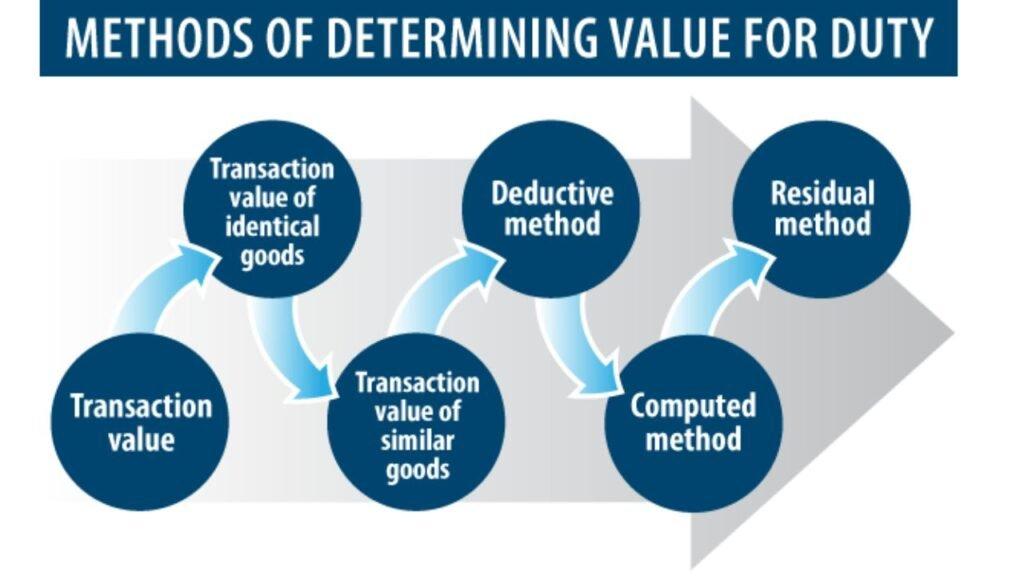In the world of global trade and commerce, navigating the complex system of customs value logistics is essential for businesses looking to transport goods across borders. From calculating import duties to understanding trade regulations, the shipping industry is a intricate web of rules and regulations that can make or break a company’s bottom line. This article will dive into the world of customs value logistics, exploring the importance of accurate valuations, the role of transport in ensuring compliance, and the impact of shipping on overall supply chain efficiency. Join us as we unravel the complexities of customs value logistics and discover the key factors that drive success in the world of international trade.
Understanding Customs Value Calculation
When it comes to importing and exporting goods, understanding how customs value is calculated is crucial for a successful logistics, transport, and shipping process. The customs value of an item is used to determine the amount of duty and taxes that need to be paid when crossing international borders. It is important to accurately calculate this value to avoid any delays or issues during customs clearance.
There are several factors that go into calculating the customs value of a shipment, including the actual cost of the goods, freight and insurance charges, and any additional costs such as packing and royalties. It is essential to keep detailed records of all these costs to ensure accurate calculation of the customs value. Additionally, it is important to be aware of any additional charges or surcharges that may be added by customs authorities based on the specific regulations of the country you are importing or exporting to.

Strategies for Efficient Logistics Management
When it comes to efficient logistics management, having a clear understanding of customs value is essential. This value refers to the cost of goods plus transportation, insurance, and other charges up to the port or airport of entry. By accurately calculating customs value, businesses can avoid delays in shipping, reduce the risk of penalties, and streamline the import/export process.
- Utilize technology to track shipments and monitor customs value in real-time
- Establish strong relationships with customs brokers and authorities for quicker clearance
- Implement proper documentation and record-keeping to ensure compliance
Another key aspect of efficient logistics management is optimizing transport and shipping methods. By choosing the most cost-effective and reliable modes of transportation, businesses can reduce lead times, minimize costs, and enhance customer satisfaction. Whether it’s utilizing air freight for expedited delivery or consolidating shipments to save on transportation expenses, strategic decision-making is key to successful logistics management.
- Invest in efficient packaging and labeling to maximize space utilization
- Consolidate shipments to reduce costs and minimize carbon footprint
- Collaborate with third-party logistics providers for customized shipping solutions

Maximizing Cost Savings in Shipping
When it comes to , one of the key factors to consider is the customs value of your goods. By accurately declaring the value of your products, you can avoid overpaying in customs duties and taxes. This is especially important when shipping internationally, as incorrect valuations can lead to delays and extra costs.
Another way to save on shipping costs is to optimize your logistics and transport strategies. Investing in efficient shipping routes, consolidating shipments, and utilizing cost-effective modes of transportation can all help reduce expenses. Additionally, partnering with reliable shipping companies and negotiating favorable rates can also lead to significant cost savings. By focusing on customs value, logistics, transport, and shipping, businesses can streamline their operations and lower expenses in the long run.

Importance of Accurate Documentation in Transport Operations
Accurate documentation in transport operations is crucial for ensuring the smooth flow of goods across borders. One of the key aspects of documentation is customs value, which determines the monetary worth of goods for customs purposes. Providing accurate customs value ensures compliance with regulations and minimizes the risk of delays or penalties.
Proper documentation also helps in tracking and tracing goods throughout the supply chain, enabling efficient logistics and shipping operations. By maintaining accurate records of cargo, invoices, and other required paperwork, transport companies can streamline their processes and offer greater transparency to customers. In a competitive industry like transport, having precise documentation can give a company a significant edge over its rivals.
Concluding Remarks
In conclusion, understanding the importance of customs value in logistics, transport, and shipping is vital for businesses looking to navigate the complexities of international trade. By accurately determining the value of goods being shipped, companies can ensure compliance with customs regulations and avoid costly delays and penalties. With the right expertise and resources, businesses can streamline their shipping processes and maximize efficiency in the global marketplace. Stay informed, stay strategic, and watch your business soar to new heights in the world of customs value logistics.
